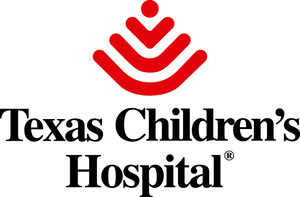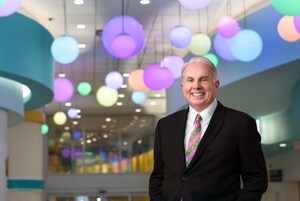Texas Children's Newborn Center is First U.S. Pediatric Hospital Designated as a World Health Organization Collaborating Centre
Tasked to improve perinatal/neonatal health, Texas Children's Newborn Center is the only center in Western Hemisphere serving in this capacity
HOUSTON, Feb. 1 /PRNewswire/ -- Texas Children's Newborn Center is the first and only pediatric center to be named a World Health Organization Collaborating Centre (WHOCC) for Perinatal/Neonatal Health. To commemorate the milestone, Texas Children's Hospital hosted a ceremony today with Senior Texas Children's Hospital, Texas Children's Newborn Center and WHOCC leadership, as well as representatives from World Health Organization/Pan American Health Organization (WHO/PAHO), in attendance. For more information please visit: http://bit.ly/aDy8kC
(Photo: http://www.newscom.com/cgi-bin/prnh/20100201/NY47755 )
Texas Children's Newborn Center, an international leader in perinatal/neonatal medicine and one of the United States' most experienced neonatal intensive care units, is honored to receive the designation. Texas Children's Hospital is the first and only pediatric hospital in the Western Hemisphere to be affiliated with WHO/PAHO in this capacity and comes after 20 years of collaboration between the organizations.
As a WHOCC, Texas Children's Newborn Center is part of the inter-institutional, multi-national collaborative network set up by WHO/PAHO in support of its programs at a country, regional and global level. The primary goal of the partnership is to make advancements in pediatric healthcare related to perinatal/neonatal health in Latin America and the Caribbean, followed by a secondary focus: to create globally replicable models around the world.
Ann R. Stark, M.D., FAAP, chief of Neonatology at Texas Children's Hospital, professor of Pediatrics at Baylor College of Medicine and director of the WHO Collaborating Centre for Perinatal/Neonatal Health, recognizes the collaboration as a chance to positively influence the Americas. "The work that can be done on maternal and child health is extremely important. The research, education and training programs that WHO/PAHO and its collaborating centers conduct are groundbreaking, and Texas Children's involvement demonstrates our thought leadership as an organization."
Dr. Yehuda Benguigui, Neonatal and Child Health Senior Adviser at PAHO, is extremely pleased about Texas Children's Hospital being designated as a WHOCC. "Considering the extraordinary technical capacity of the Neonatology section of Texas Children's Hospital, as well as their experience in education, training, formation of young professionals in health and international cooperation, Texas Children's Newborn Center represents a highly relevant partner in supporting the region of the Americas to achieve Millennium Development Goal #4 related to lowering infant and neonatal mortality and bettering the quality of life of the children in our region."
In Latin American and the Caribbean, newborn deaths are the leading cause of mortality in children under the age of five. PAHO calculates that approximately 9% of newborns in Latin America have a low birth weight, and it is estimated that this factor contributes between 40% and 80% of neonatal deaths.
Specifically, the Texas Children's Newborn Center WHOCC for Perinatal/Neonatal Health will:
- Conduct research on the fortification of human milk to increase the rate of growth among low birth weight infants in developing countries.
- Conduct research into the development and implementation of family-centered care in low birth weight infants.
- Support WHO's Integrated Management of Childhood Illnesses' (IMCI) strategy by conducting workshops designed to train physicians and nurses from other countries on how to successfully implement the neonatology component of IMCIassist with national and international training workshops and practical training of physicians, nurses and dieticians involving perinatal and neonatal nutrition practices.
- Collaborate with WHO in developing, writing and editing neonatal guidelines.
Since the mid 1980s, Texas Children's Newborn Center and WHO/PAHO have enjoyed a mutually beneficial relationship in which the sharing of information, ideas and best practices have become commonplace. The two organizations have collaborated on several projects targeted at reducing mortality rates of children in the Americas and beyond. In light of the foci and missions of both organizations as well as the history of the collaboration, the institutions have now combined their mutual expertise to positively affect perinatal/neonatal health in the Americas and around the world.
The designation of Texas Children's Newborn Center as a WHOCC will remain active through August 2012, at which time Texas Children's Newborn Center can apply for a four-year renewal.
About the World Health Organization (WHO) – WHO is the directing and coordinating authority for health within the United Nations system. It is responsible for providing leadership on global health matters, shaping the health research agenda, setting norms and standards, articulating evidence-based policy options, providing technical support to countries and monitoring and assessing health trends. www.who.int.
About Texas Children's Hospital Newborn Center – Ranked #7 nationally in neonatology by U.S. News Media Group in 2009, Texas Children's Hospital is the leader in the Southern United States in the treatment of babies born with complications or prematurely. The physicians at Texas Children's Newborn Center are international leaders in neonatology and neonatal surgery. Texas Children's Newborn Center is home to one of the largest Level IIIC neonatal intensive care units in the country and is committed to providing premier, complete treatment for newborns in need. For more information, visit www.texaschildrens.org.
Press Inquiries Please Contact: |
|
Meece Media, Nicole Truscinski |
|
212.677.2748 |
|
SOURCE Texas Children's Hospital
WANT YOUR COMPANY'S NEWS FEATURED ON PRNEWSWIRE.COM?
Newsrooms &
Influencers
Digital Media
Outlets
Journalists
Opted In





Share this article